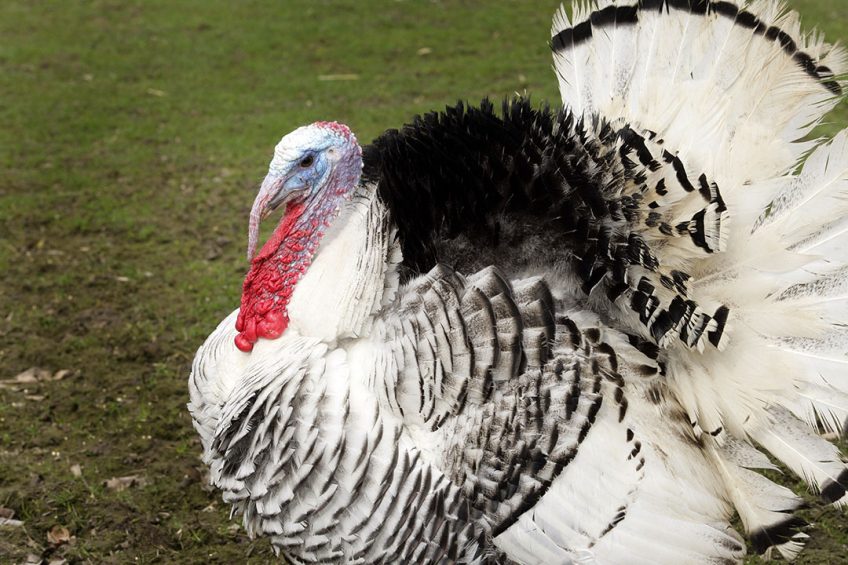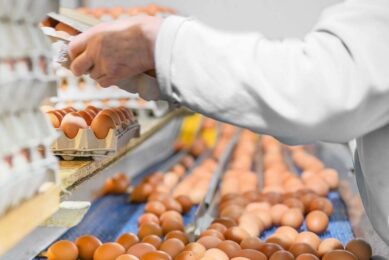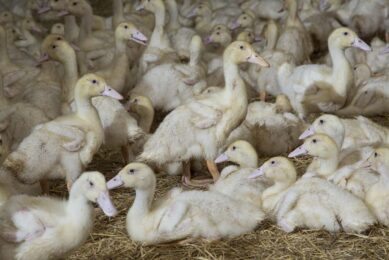Thousands of turkeys culled as bird flu strikes again

In a terrible blow just before Christmas, a UK poultry farmer has just lost 10,500 turkeys that had to be culled when avian influenza was detected.
Officials confirmed the H5N8 strain of avian influenza was found at a turkey fattening farm near Northallerton in North Yorkshire on Saturday.
Defra (Department for Environment, Food and Rural Affairs) said all the birds were being culled in a bid to try and contain the disease as staff set up a temporary control zone around the farm. This is a 3km (1.9-mile) protection zone immediately around the location of the outbreak with another 10km (6.2-mile) surveillance zone around it.
Defra’s chief veterinary officer, Christine Middlemiss, said: “We are urgently looking for any evidence of disease spread associated with this farm to control and eliminate it.
“Bird keepers should remain alert for any signs of disease, report suspected disease immediately and ensure they are maintaining good biosecurity on their premises.” Defra said the disease can spread to poultry and other captive birds when wild birds migrate from mainland Europe during the winter period.
Low risk to public
Routine health advice is being offered to those working on the farm as Public Health England (PHE) said the risk to public health from the virus is very low.
A Food Standards Agency spokesman said bird flu poses a very low food safety risk, and added: “Properly cooked poultry and poultry products, including eggs, remain safe to eat.” Dr Gavin Dabrera, a consultant in Acute Respiratory Infections at PHE, said the World Health Organisation has never confirmed any cases of H5N8 in humans to date.
 Avian influenza (AI)
Avian influenza (AI)
Find out more about the causes and effects of avian influenza and many other poultry diseases in the Poultry World health tool.
This latest outbreak of bird flu is the latest in a number of confirmed cases of bird flu in the UK. Losing this number of turkeys just before Christmas is not likely to have an impact on the supply of these birds for the festive dinner table, said the industry. UK poultry farms have faced fresh calls to up their biosecurity following a spate of outbreaks of a highly pathogenic H5N8 strain of bird flu in Cheshire, Devon, Gloucestershire and Hertfordshire over the past 2 weeks. In these cases the outbreaks were found in wild bird populations and 2 broiler chicken farms, where all the birds were culled. This strain is also being blamed for a number of swan deaths in the UK which were found spinning in circles and discharging blood from their nostrils.
Meanwhile in Northern Ireland an Avian Influenza Prevention Zone (AIPZ) has been set up from 1 December.
The AIPZ places a legal requirement on all bird keepers in Northern Ireland to follow strict biosecurity measures which applies to everyone, including those who keep pet birds, commercial flocks or just a few birds in a back yard.
The decision to introduce an AIPZ follows the detection of highly pathogenic Avian Influenza H5N8 (HPAI H5N8) in 5 wild birds across Northern Ireland in recent weeks. Further cases of AI have been detected in over 100 wild birds across Great Britain with 5 cases of the H5N8 strain being confirmed in commercial premises in England.
 The Netherlands: trial with lasers for AI prevention
The Netherlands: trial with lasers for AI prevention
Lasers are being trialled on a Dutch free-range poultry farm to see if they can remove the threat of avian influenza contamination from wild birds.
There have also been 3 reported cases in wild birds in the Republic of Ireland where similar measures are also being introduced on December 1.
Daera Minister Edwin Poots said: “In recent weeks, the department has detected highly pathogenic Avian Influenza in 5 wild birds across Northern Ireland.
“It is clear that the virus is now present here and I have therefore taken the decision to declare an Avian Influenza Prevention Zone from 1 December based on sound expert advice and in consultation with industry.
“This is a necessary precautionary step that requires all bird keepers to take appropriate action to review and enhance the measures to protect their birds from this highly infectious disease,” he said.
Join 31,000+ subscribers
Subscribe to our newsletter to stay updated about all the need-to-know content in the poultry sector, three times a week. Beheer
Beheer








 WP Admin
WP Admin  Bewerk bericht
Bewerk bericht